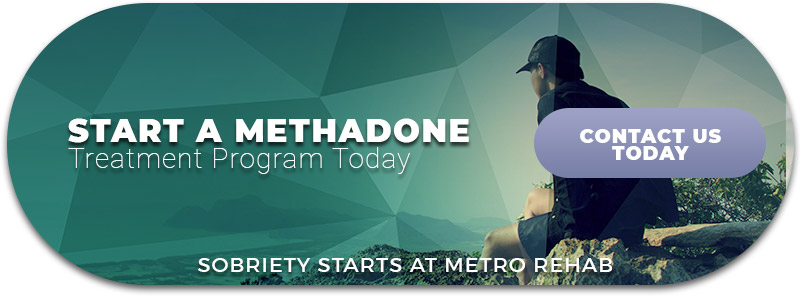The road to addiction recovery is a long and twisting road with bumps and sharp curves that don’t make it easy. It is important to understand that addiction is not “cured” with drug rehabilitation, but it is managed and should supply you with coping techniques and relapse prevention methods. However, every now and again you may be tempted to fall back into your old habits and addiction can suck you back in. In today’s post, we will discuss some tips for relapse prevention to help you continue on your sober path.
At Metropolitan Rehabilitation Center, we know that drug addiction is a powerful villain that will continue to look for the opportunity to get you back in its grip. We are on your side and invested in your success at preventing relapse. It is important to understand your triggers and develop coping techniques that work for you. If you are having a crisis or have already fallen victim to relapse, contact us right away. A stumble does not mean you have failed, it simply means you need help getting back on the sober path.

Know your triggers.
During the addiction recovery process, one of the most important steps to successful recovery is identifying the root cause of addition and your triggers. These are different for every addict, but are important to maintaining long-term sobriety. Depending on where you are at in your sober life, understanding these things and being aware of them may be the only thing you need to keep on the sober path. For others, avoiding triggers altogether may be the only way to remain clean. As part of your recovery, identify triggers and make a plan of what to do if you encounter them. For instance, if one of your triggers is emotional anxiety, you cannot avoid feeling this way, but you can find alternate coping techniques that will prevent you from turning to old habits.
 Find a distraction.
Find a distraction.
Distractions are great for offering an alternative to any sort of addiction. However, it is important to be fully aware that these are distractions and that they should be healthy alternatives. For many addicts, keeping a full schedule can be a great distraction, however when there is downtime or in times where a full schedule gets overwhelming, it can result in relapse, so be cautious of what the distraction is. Many recovering addicts find it helpful to distract themselves with a hobby or some form of creative expression. Journaling, painting, drawing, or building something helps to keep the hands and the mind busy while creating a sense of inner peace.
Have a support system.
A solid support system is critical for successful addiction recovery. If you cannot count on close friends or family, find support in your AA, NA, or rehab team. It is wise to have a list of several people that you can reach out to in moments of weakness in case the first person is not immediately available. Your support system should be strong and help grasp you back from the temptations of addiction.
Celebrate the little wins.
Take your recovery one day at a time and be sure to celebrate the little wins! For many former addicts, sober living can be daunting and overwhelming and the simple thought of using again can be enough to make them feel like a failure. It is important to recognize that every time you think about using or have the urge to use and don’t, you have won — you’ve looked your former addiction in the face and said: “not today.” This is a win and something you should be proud of. Assess how and why you were able to resist and use it the next time you are tempted.
Get help.
Do not face addiction alone. If you feel yourself on the verge of relapse, get help right away. Whether you have begun using again or not, it is never too late to get the help you need. For drug addiction help in Detroit, Metro Rehab offers a variety of options including crisis intervention, inpatient and outpatient drug addiction rehab, support groups, mental health counseling, and medication assistance. For all of your drug addiction recovery and relapse prevention needs, contact us at Metro Rehab today!


